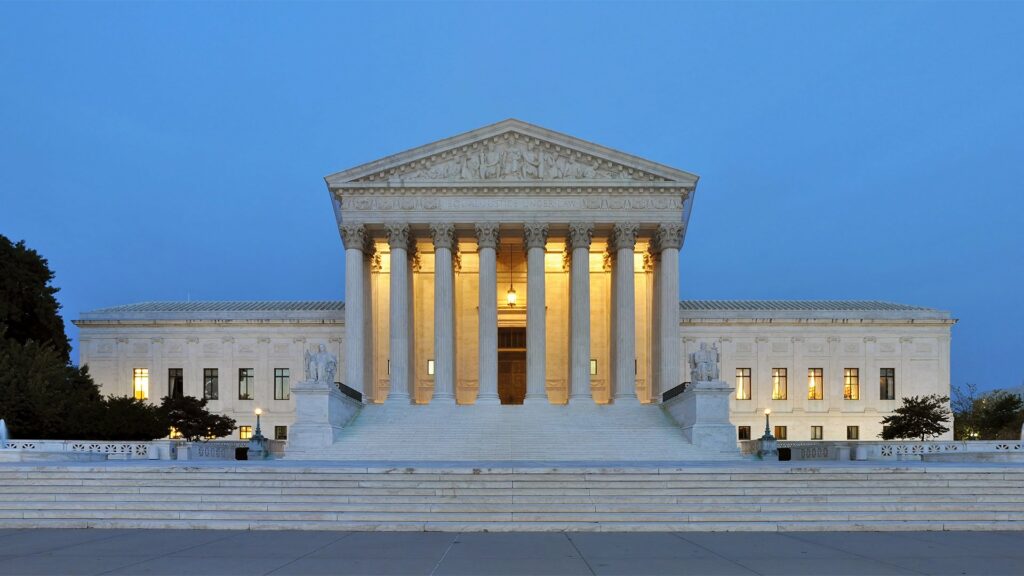The U.S. Supreme Court announced on Monday that it will not hear the Florida sports betting case, a decision that effectively maintains the Seminole Tribe of Florida’s exclusivity on sports betting in the state.
The decision came after the justices considered the case, West Flagler Associates v. U.S. Department of the Interior, during a private conference last week. The rejection was largely expected, as the Supreme Court denies more than 95% of cases presented to it. Despite this, some legal experts had speculated that the Court could show interest due to the ongoing debate over the legality of online sports betting in the state and its national implications.
“The Seminole Tribe of Florida applauds today’s decision by the U.S. Supreme Court to decline consideration of the case involving the Tribe’s Gaming Compact with the State of Florida,” said Gary Bitner, a spokesperson for the Tribe. “It means members of the Seminole Tribe and all Floridians can count on a bright future made possible by the Compact.”
The compact, negotiated in 2021 between the Seminole Tribe and Governor Ron DeSantis, grants the tribe exclusive rights to offer legal online sports betting in Florida. Under the agreement, bets can be placed anywhere in the state via mobile devices, with servers located on tribal land processing the wagers to comply with federal regulations.
Justice Brett Kavanaugh indicated he would have granted the petition for a writ of certiorari, while Justice Ketanji Brown Jackson did not participate in the decision. Kavanaugh had previously expressed concerns that West Flagler and other gambling companies were treated unfairly due to the state’s monopoly granted to the Seminole Tribe.
The compact, which will run until July 2051, allows the Seminole Tribe to offer sports betting both online and in-person at its six casinos. The tribe relaunched its online sports betting platform, Hard Rock Bet, in November 2023, and in-person betting began the following month.
West Flagler Associates had argued that the compact violated a federal statute known as the Indian Gaming Regulatory Act, which restricts gambling to tribal lands. An appeals court overturned an earlier ruling in favor of West Flagler last September, leading to the widespread launch of online sports betting.
The decision by the Supreme Court may encourage other states to adopt similar agreements, enabling recognized tribal gaming nations to operate online sports betting. Steve Bittenbender, an analyst for FloridaBet.com, noted that states such as New Mexico, Washington, and Wisconsin could follow Florida’s example.
Daniel Wallach, a sports betting attorney based in Hallandale Beach, predicted that the ruling could expedite the introduction of online sports betting in California and potentially lead to the legalization of online gambling in Florida by 2026.
While the tribe’s monopoly on sports betting in Florida is secure for now, future legal challenges could arise. West Flagler could pursue further litigation over equal protection issues, and the Florida Supreme Court could revisit the case if brought back through the lower courts.
